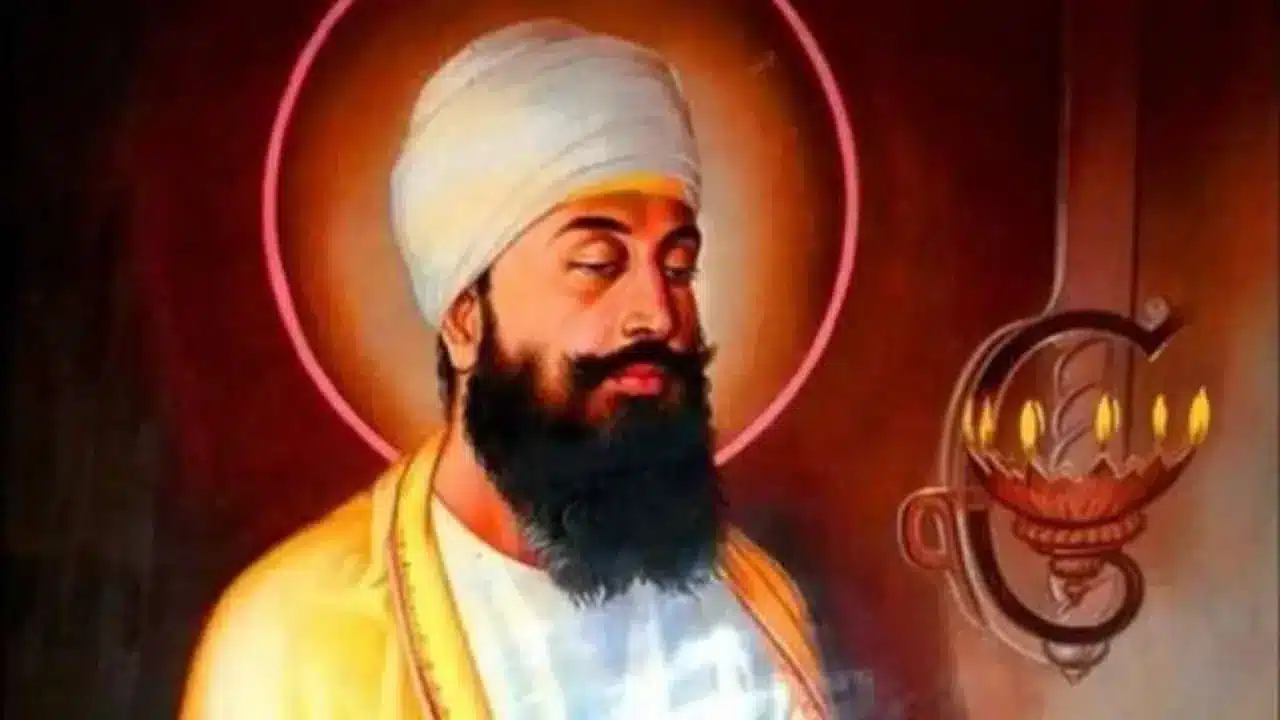Remembering Guru Tegh Bahadur on Shaheedi Divas

Guru Tegh Bahadur martyrdom is observed every year on 24 November. He was considered as an ethical and principled and undaunted person. His 115 hymns are included in Sri Guru Granth Sahib, the holy book in Sikhism. He was executed by beheading on the orders of Aurangzeb, the sixth Mughal emperor, in Delhi, India. In order to observe the martyrdom of Guru, Shaheedi Divas is observed.
Sikh holy premises Gurudwara Sis Ganj Sahib and Gurdwara Rakab Ganj Sahib in Delhi mark the places of execution and cremation of Guru Tegh Bahadur. though he was executed on 11 November 1675, his martyrdom is remembered as the Shaheedi Divas of Guru Tegh Bahadur every year on 24 November, according to the Nanakshahi calendar released by the Shiromani Gurdwara Parbandhak Committee in 2003.
Commemoration 400th Birth Anniversary (Prakash Purab) of Sri Guru Tegh Bahadur Ji
Early life Guru Tegh Bahadur
Guru Tegh Bahadur (April 1621 – 11 November 1675) was the ninth of ten Gurus who founded the Sikh religion and the leader of Sikhs from 1665 until his beheading in 1675. He was born in Amritsar, Punjab, India in 1621 and was the youngest son of Guru Hargobind, the sixth Sikh guru. He came to be known by the name Tegh Bahadur (Mighty of the Sword), given to him by Guru Hargobind after he had shown his valour in a battle against the Mughals.
He was brought up in the Sikh culture and trained in archery and horsemanship. He was also taught the old classics such as the Vedas, the Upanishads, and the Puranas. He preferred prolonged spells of seclusion and contemplation. later, he was married on 3 February 1632 to Mata Gujri.
Guru Tegh Bahadur, the ninth Guru of Sikh religion
In the 1640s, nearing his death, Guru Hargobind and his wife Nanki moved to his ancestral village of Bakala in Amritsar district, together with Tegh Bahadur and Mata Gujri. After Guru Hargobind’s death, Tegh Bahadur continued to live in Bakala with his wife and mother.
In March 1664 Guru Har Krishan, who was the eighth guru, contracted smallpox. When asked by his followers who would lead them after him, he replied to Baba Bakala, meaning his successor was to be found in Bakala. Taking advantage of the ambiguity in the words of the dying Guru, many installed themselves in Bakala, claiming themselves as the new Guru.
Sikh tradition has a myth concerning the way he was selected as the ninth guru. A wealthy trader, Baba Makhan Shah Labana, had once prayed for his life and had promised to gift 500 gold coins to the Sikh Guru if he survived. He arrived in search of the ninth Guru. He went from one claimant to the next making his obeisance and offering two gold coins to each Guru, believing that the right guru would know that his silent promise was to gift 500 coins for his safety. Every “guru” he met accepted the two gold coins and bid him farewell. Then he discovered that Tegh Bahadur also lived at Bakala. Labana gifted Tegh Bahadur the usual offering of two gold coins. Tegh Bahadur gave him his blessings and remarked that his offering was considerably short of the promised five hundred. Makhan Shah Labana forthwith made good the difference and ran upstairs. He began shouting from the rooftop, “Guru ladho re, Guru ladho re” meaning “I have found the Guru, I have found the Guru”
In August 1664, a Sikh Sangat arrived in Bakala and anointed Tegh Bahadur as the ninth guru of Sikhs. To spread the message of Sikhism, Guru Teg Bahadur traveled extensively through the Indian subcontinent, setting up several new preaching centers. Guru
Teg Bahadur was publicly executed on the orders of Aurangzeb for refusing to convert to Islam. He was martyred in Delhi, at Chandni Chowk. After he was beheaded, one of his followers carried the head to Guru Tegh Bahadur’s son Gobind Rai. Another follower took the remaining part of the body to his house. After the prayers were performed, he burnt Guru entire body along with his house.
Tribute
As a tribute, one of the All-India Hockey tournaments is named after him called ‘All India Guru Tegh Bahadur Gold Cup’.
Observed only in Punjab, the martyrdom day of Shri Guru Tegh Bahadur Ji is a restricted holiday. It marks the day of his martyrdom.
Observer Voice is the one stop site for National, International news, Sports, Editor’s Choice, Art/culture contents, Quotes and much more. We also cover historical contents. Historical contents includes World History, Indian History, and what happened today. The website also covers Entertainment across the India and World.
Follow Us on Twitter, Instagram, Facebook, & LinkedIn

